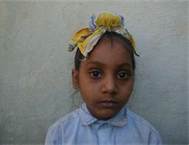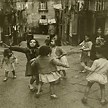
The Color of Soul
I can’t remember how long I’d known my first boyfriend before he told me he was Black. I was surprised, to say the least, since up to that point I’d thought he was a skinny Jewish kid from Philadelphia. Well, he was from Philadelphia, from a section of the city called Germantown which he assured me was majority Black, and he was Jewish, that he wasn’t disputing, but I shouldn’t be deceived by his skin color, he told me. Deep down under all that, his soul was Black.
This heart-felt declaration was made hours into one of those all-night, painfully intense, stupendously pretentious conversations that the eighteen-year-olds at The New School for Social Research in New York City were prone to having. The year was 1981 and I was freshly graduated from a rural-suburban high school in a town that was thirty one years away from becoming infamous, but not necessarily interesting, and certainly never cutting edge. My boyfriend had grown up in a great metropolis with his lesbian poet mother and her partner. His parents were divorced. My parents were hopelessly married and hopelessly conventional in a way that I was determined to escape. There was no way I was going to laugh at him, or ask with the slightest bit of irony, “Really? Are you sure?”
It was a heady time for the newcomers to The New School. Somehow, we’d all managed to get ourselves from Seattle, or Ohio, or Maryland, or Pennsylvania, or Mexico, or in my case from Connecticut, to Greenwich Village, most of us against our parents’ better judgement. We were all congratulating ourselves at having escaped the dreaded fate of going to a “conventional” college, the kind with a campus and football season and frat parties full of dunderheads. We were not athletes, we were intellectuals, or thought we were. We were completely self-involved and totally convinced that we could make ourselves, at the tender age of eighteen, into whatever and whoever we wanted to be. A lot of us already had therapists.
Though I’ve fallen out of touch with the students I shared that intense year of seminars and conversations with, I still clearly remember many of them. I remember my boyfriend, of course, a pale red-headed Jewish boy of Russian extraction who’d gone to a private Quaker school in Philadelphia. I remember a gay boy from Ohio who told us he’d already achieved everything he wanted to by getting himself out of the Mid-West and to New York. I remember a girl from Maryland who invited me to lunch, told me to get dressed up, and then took me on the train out to Belmont Raceway, where we ate in the Clubhouse with her father and watched his horses run. (Years later, when I knew what it was, I checked The Social Register and found this girl’s name there.) I remember a girl from Allentown who would complain about the outrageous arrogance and pomposity of her mother and father’s matching BMW’s and then go out and buy multiple bottles of Moet and Chandon and containers of Hagen Daaz (on his account) which we all went up to the roof to devour.
We were none of us poor and none of us Black, except for my boyfriend, of course.
He insisted he was Black because he’d grown up around the Black people in his neighborhood (though not too many in his private school, naturally). Their conversations were his conversations. Their music was his music, and their suffering, well, he didn’t go that far, but the Jews had suffered, too. He was more comfortable around them, he told us, than he was around us. He played jazz loudly at all hours of the day and night and was determined to teach me about this jazz, to get me to feel and understand it the way he did. Under his tutelage I read biographies of Thelonious Monk and Charlie Parker. I listened to their recordings and then to my boyfriend’s interpretations of these recordings. I didn’t feel Black, I’m afraid. I still felt like me. A white girl who was listening to a boy who fascinated her, who was different, like no one she’d ever met before.
After the first flush of excitement wore off, however, the excitement of finally having a boyfriend, the excitement of experiencing someone else’s deep passion for something, I confess I did begin to become weary. So, too, did the rest of our dorm mates. In the end, it was decided by a group of people who were prepared to accept the most outlandish and melodramatic personal claims in the interests of self-expression that my boyfriend’s claim was not acceptable, that it was more than this, it was inauthentic and unnecessary. Why not just be a White boy who likes Black culture and loves jazz? What would have been wrong with that?
I have no idea what this boy went on to do or be. I have no idea if he artificially darkened his skin and tried to “pass.” I have no idea if he engaged himself for Black causes posing as a Black man. I hope he didn’t, for it seems an existence built upon the sands.
It would also have been the ultimate slap in the face to the very people he told us he liked more than us, a people for whom the color of their skins, or their souls, is not a lifestyle choice. I would hope he grew to know this. I would hope that like I did, he finally grew up.





Loved this!! I also have been fascinated by Rachel Dolezal. This fella you knew long ago would certainly relate.
This is thought-provoking and insightful. How it gets at the “arrogance” of youth in transition to adulthood is to the point. An apt description of one of life’s passages, it sets the stage and characterization for an intellectual generation that escaped to New York and to a mecca of higher learning that they believed would set them apart. The insight comes when the author realizes that one grows beyond that and the idealism of it all is but a blip on life’s journey. The young black lover is really no different than any of the other characters. They are all pretending to be something different in their quest to learn who they really are.
This is wonderfully written and I enjoyed it. I didn’t feel any more sympathy for the black pretender than I did for any of the characters. They were all pretenders to a certain extent and were just learning how to be adults in the world they inherited.